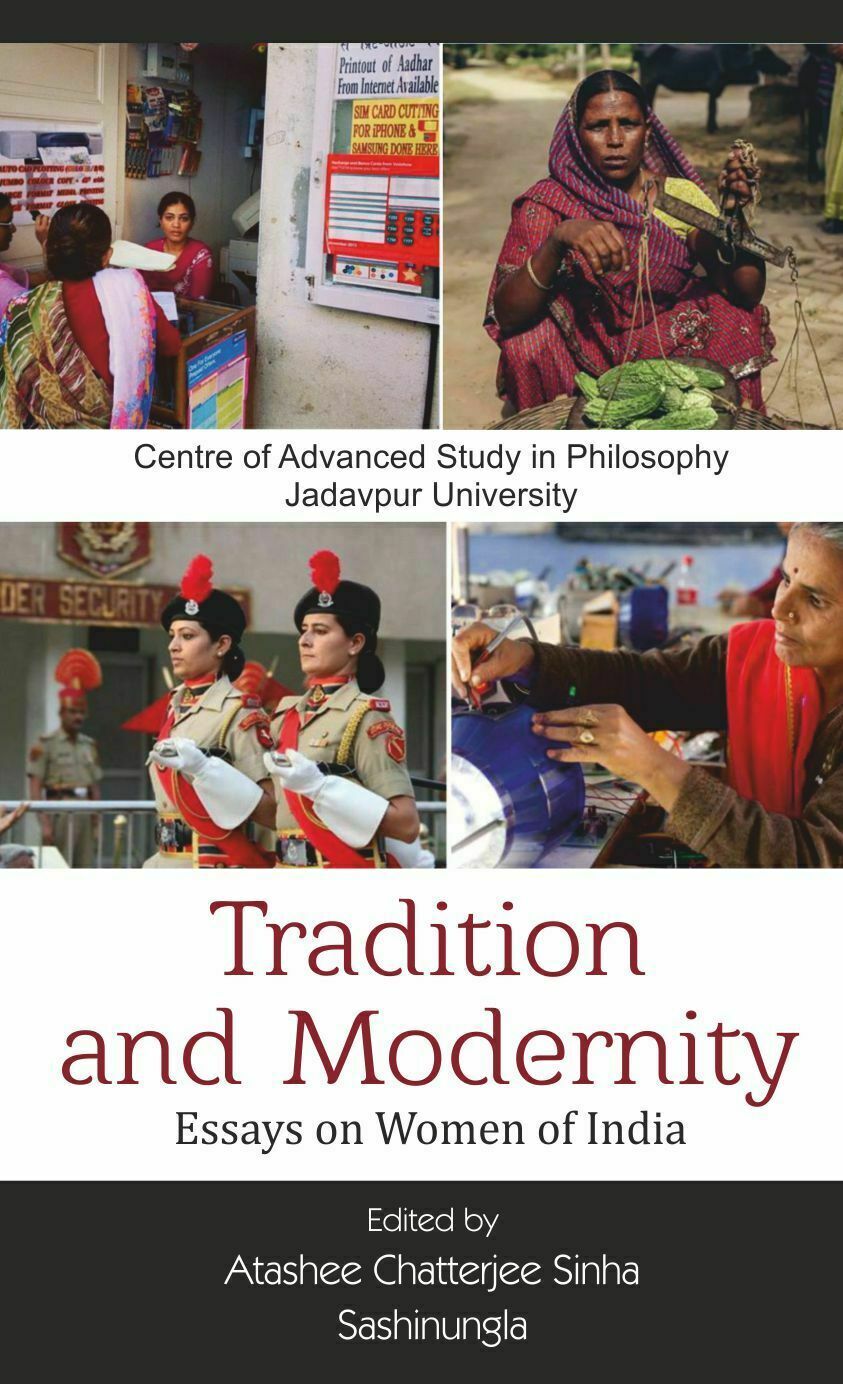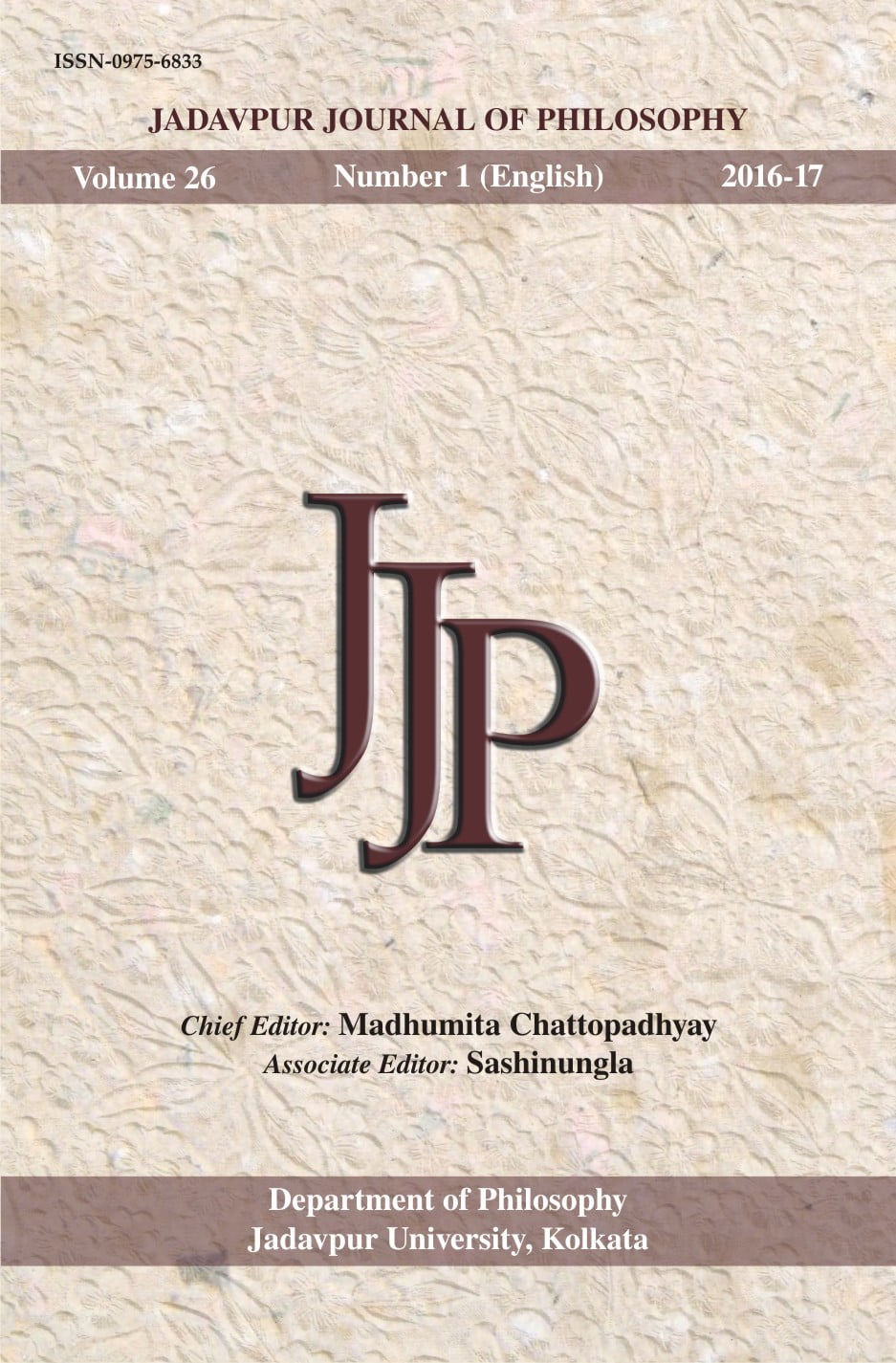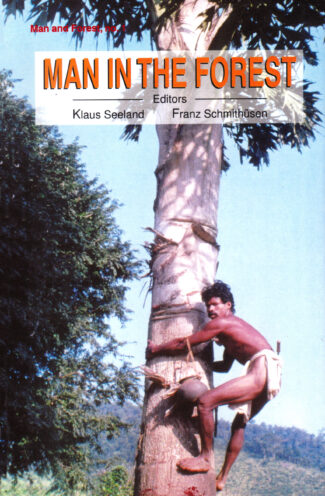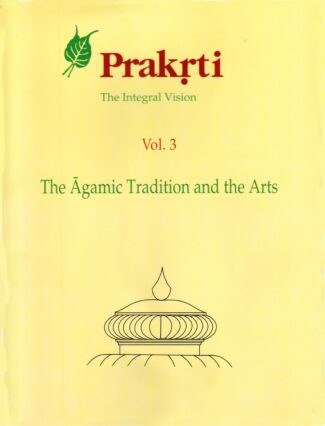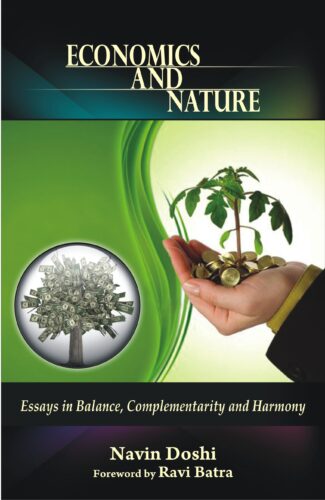
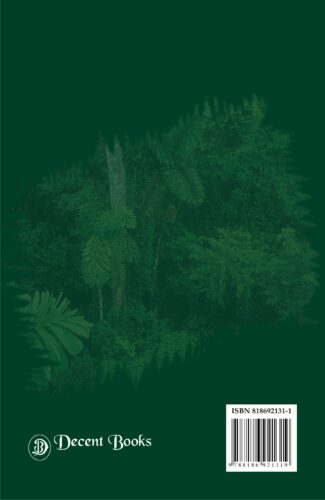
Environment Preserva...
Environment Preservation
A Philosophical Critique by: SashinunglaThe dominant ethical understanding and its preservation strategy is erroneous in itself to serve us with a more evaluative ethics to the present environmental crisis because its idea of Nature itself can also tend to be limited. The author explores the traditional tribal understanding of the close correlation between man and his environment for a new dialogue in philosophy.
₹280.00 Original price was: ₹280.00.₹252.00Current price is: ₹252.00.
ISBN: 9788186921319
Year Of Publication: 2005
Edition: 1st
Pages : viii, 152
Bibliographic Details : Bibliography; Index
Language : English
Binding : Hardcover
Publisher: Decent Books
Size: 23 cm.
Weight: 450
In an integrated and comprehensive framework, Environment Preservation: A Philosophical Critique takes a critical look at the increasing literatures and specific attempts at environmental preservation. The dominant ethical understanding and its preservation strategy, according to the author, is erroneous in itself to serve us with a more evaluative ethics to the present environmental crisis because its idea of Nature itself can also tend to be limited. The author turns away, therefore, from the sole western anthropocentric polemic and explores the traditional tribal understanding of the close correlation between man and his environment for a new dialogue in philosophy. The book will be imperative both to students at various undergraduate and post-graduate levels as well as to researchers. It will also interest anyone who wants to delve deeply into the philosophical issues of Nature preservation..
Preface
1. Introduction
2. Concept of Environment Preservation
3. Nature vs. Environment
4. Critique of Preservation Schemes
5. The Ao vision of Nature Preservation
6. Conclusion
Bibliography
Index
- Sale!Man in the Forest by: Klaus Seeland, Franz Schmithusen,
₹450.00Original price was: ₹450.00.₹405.00Current price is: ₹405.00.In the management of renewable resources, forests have undeniably a vital role. And today, more than ever before, their conservation is an urgency. In view of this dire necessity, Man in the Forest tries to highlight the high relevance of indigenous knowledge of Indian tribal communities in the sustainable management of forests/local resources more specially against the growing challenges of economic development vis-a-vis environmental hazards and a declining resource base. A scientific inquiry into the area of indigenous knowledge is basically an effort to discover/rediscover (in the tribals traditional modes of production and conservation) appropriate means to cope with the problems of modernity affecting largely the lives of the poor: not only in precarious environments, but amidst fast-depleting local resources as well. Essentially a selection of papers: based on cross-cultural, interdisciplinary investigations, the book takes a critical look at both the ascribed benefits and limitations of indigenous knowledge in general, and with regard to forest management by local tribal people in particular. Also including, contextually, an overview of the various aspects of forests lifestyles, forest use, and management of natural resources in different climatic and cultural zones on the subcontinent, the authors emphasize the social meaning of forests as a cultural legacy with case studies from different regions of India, namely, Arunachal Pradesh, Himachal Pradesh, Karnataka, Madhya Pradesh, Orissa, Rajasthan, and Uttar Pradesh. It is the first volume in the the newly-launched series about Man and Forest in South Asia, putting together research findings that represent accounts of experience and empirical evidence in the fields of forest management, social anthropology, ethno-botany, economy, forest policy and cultural history.
- Sale!Prakrti (Vol. 3) by: Kapila Vatsyayan
₹1,400.00Original price was: ₹1,400.00.₹1,260.00Current price is: ₹1,260.00.PRAKRTI : The Integral Vision explores the concept of the primal Elements (Sky, Air, Fire, Water, Earth, etc.) which has governed and determined the evolution of civilizations and cultures. This 5-volume collection is the outcome of a series of five successive but inter-locked seminars culminating into cross-cultural, multi-disciplinary understanding. The First Volume, Primal Elements: The Oral Tradition, focuses attention on the articulation of cohesive communities communicating with the Elements in continuous unceasing dialogue. To them the nature is not a matter of intellection; it is a question of life here and now. This is manifested in their primary myths and rituals which sacralize nature so that man can live as an integral part of the Universe. The Second Volume, Vedic, Buddhist and Jain Traditions, centres on the texts, probing deep into the Vedic rituals, Upanisadic philosophies and Jyotisa sastra. There is a prodigious consideration of the concept of maha-bhutas in Buddhism and Jainism. It also brings forth the many covergences and divergences of the view-points between and amongst these different streams of Indian thought. The Third Volume, The Agamic Tradition and the Arts, examines systematically the manifestation of the Elements in the Indian arts and their Agamic background. From the different vantage points of the architect, sculptor, painter, musician and dancer, the field is reopened here to discern the structure of the arts at its primal level. Experiences of the transformation of the gross to the subtle and the theories of aesthetics and cultural ecology emerge from such a captivating view-point. The Fourth Volume, The Nature of Matter offers a much-needed critical appraisal of modern scientific concepts with reference to traditional thoughts. It contains invaluable discussion on quantum theory and elementary particles, evolution of living matter, nature and function of matter, scientific philosophy and Buddhist thought, Sankhya theory of matter, ancient and medieval biology, mysticism and modern science, traditional cosmology, matter and medicine, matter and consciousness, etc. The dialogue created between the method of science and the method of speculation is invigorating. The Fifth Volume, Man in Nature, is a coming together of cultures and disciplines. Enchanting in their own way, the international community of scientists, philosophers, anthropologists, ecologists and artists, share in this volume the myths and cosmology of their respective societies and cultures. There emerges a most meaningful dialogue between those who live with the myths of primordial elements and those who have modified the tools of science to investigate the nature of matter. This 5-volume set, first of its kind, produced by the most distinguished specialists in the field, should enjoy a wide readership amongst philosophers of many different persuasions, scientists, theorists of art and culture, particularly ecologists and anthropologists seeking new insights into the phenomena of Nature.
- Sale!Indigenous Knowledge, Forest Management and Forest Policy in South Asia by: Klaus Seeland, Franz Schmithusen,
₹750.00Original price was: ₹750.00.₹675.00Current price is: ₹675.00.Reflecting the latest findings of a large research project that began about a decade ago this volume, the 5th in the ongoing Man and Forest series, highlights the relevance of indigenous knowledge of various South Asian tribal and rural communities in the sustainable management of forests and local resources more specially against the growing challenges of economic development vis-a-vis environmental hazards and a declining resource base. Not only the volume reiterates the relevance of indigenous knowledge as a development tool in this age of standardized, modern know-how applications, but also illustrates its enormous impact on the social development in tribal and rural areas. Not just in India but in the adjacent countries of Nepal and Bhutan as well are analysed forest policy issues. In these countries, particularly in the current scenario of regulation, the authors emphasise of both collective initiatives at the grassroots level and securing the locally accepted patterns of livelihood for the tribal and village communities. The volume includes widely varied case studies on the role of indigenous knowledge in forestry, community living, and joint management of local natural resources. This book consists of 17 papers, based on cross-cultural, interdisciplinary investigations of well-known scholars of forest management, ethno-botanists, social anthropologists and of the members of several local NGOs involved in either community forestry or village development programmes.
- Sale!Prakrti (Vol. 4) by: Kapila Vatsyayan
₹1,400.00Original price was: ₹1,400.00.₹1,260.00Current price is: ₹1,260.00.PRAKRTI : The Integral Vision explores the concept of the primal Elements (Sky, Air, Fire, Water, Earth, etc.) which has governed and determined the evolution of civilizations and cultures. This 5-volume collection is the outcome of a series of five successive but inter-locked seminars culminating into cross-cultural, multi-disciplinary understanding. The First Volume, Primal Elements: The Oral Tradition, focuses attention on the articulation of cohesive communities communicating with the Elements in continuous unceasing dialogue. To them the nature is not a matter of intellection; it is a question of life here and now. This is manifested in their primary myths and rituals which sacralize nature so that man can live as an integral part of the Universe. The Second Volume, Vedic, Buddhist and Jain Traditions, centres on the texts, probing deep into the Vedic rituals, Upanisadic philosophies and Jyotisa sastra. There is a prodigious consideration of the concept of maha-bhutas in Buddhism and Jainism. It also brings forth the many covergences and divergences of the view-points between and amongst these different streams of Indian thought. The Third Volume, The Agamic Tradition and the Arts, examines systematically the manifestation of the Elements in the Indian arts and their Agamic background. From the different vantage points of the architect, sculptor, painter, musician and dancer, the field is reopened here to discern the structure of the arts at its primal level. Experiences of the transformation of the gross to the subtle and the theories of aesthetics and cultural ecology emerge from such a captivating view-point. The Fourth Volume, The Nature of Matter offers a much-needed critical appraisal of modern scientific concepts with reference to traditional thoughts. It contains invaluable discussion on quantum theory and elementary particles, evolution of living matter, nature and function of matter, scientific philosophy and Buddhist thought, Sankhya theory of matter, ancient and medieval biology, mysticism and modern science, traditional cosmology, matter and medicine, matter and consciousness, etc. The dialogue created between the method of science and the method of speculation is invigorating. The Fifth Volume, Man in Nature, is a coming together of cultures and disciplines. Enchanting in their own way, the international community of scientists, philosophers, anthropologists, ecologists and artists, share in this volume the myths and cosmology of their respective societies and cultures. There emerges a most meaningful dialogue between those who live with the myths of primordial elements and those who have modified the tools of science to investigate the nature of matter. This 5-volume set, first of its kind, produced by the most distinguished specialists in the field, should enjoy a wide readership amongst philosophers of many different persuasions, scientists, theorists of art and culture, particularly ecologists and anthropologists seeking new insights into the phenomena of Nature.
- Sale!Economics and Nature by: Navin Doshi
₹600.00Original price was: ₹600.00.₹540.00Current price is: ₹540.00.The book, adopting a fresh approach, addresses the economic travails in the contemporary global scenario and presents a search for solutions to the economic quagmire based on arguments relying on common sense and understanding of human nature. It analyses the views of thinkers and economists including Kautilya of the ancient India, ideas of John Maynard Keynes and Milton Friedman, and other highly acclaimed economic theories to discuss ideal economic concepts. Looking at the past for economic wisdom and taking clue from the laws of nature which ensures that imbalances do not persist for long, the articles in the volume deal with matters of deep concern in the present-day global economic scenario and ways to address them. The volume, informative, interesting and insightful, is bound to be useful to economists as well as general readers.


